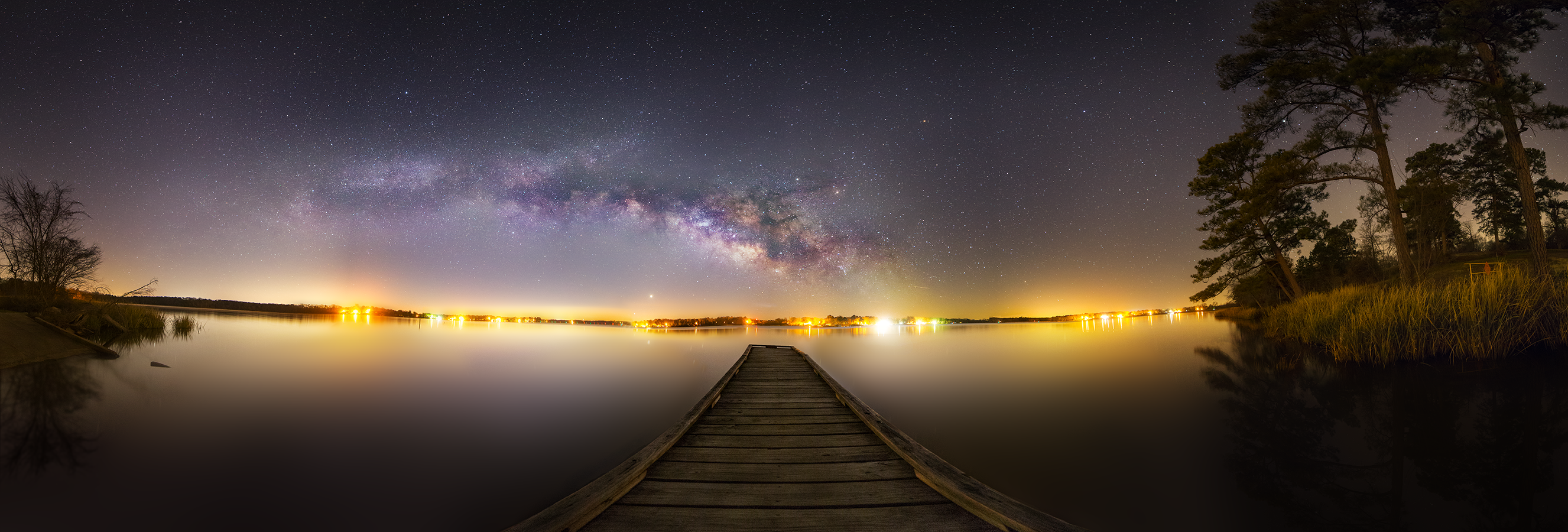Paste the link if you can't access the links/proceed to page 2.
http://www.msnbc.msn.com/id/35957420/ns/technology_and_science-space/
Be Well.
David
INTERACTIVE |
Looking beyond the Big Bang Learn more about cosmic inflation and other ideas about the universe's origin. |
Big questions surround big-bang theory
What happened before the universe’s expansion? Will it happen again?
By Clara MoskowitzThe big bang was the beginning of the universe as we know it, most scientists say. But was it the first beginning, and will it be the last?
A popular picture of the early universe imagines a single big bang, after which space blew up quickly like a giant bubble. But another theory posits that we live in a universe of 11 dimensions, where all particles are actually made of tiny vibrating strings. This could create a universe stuck in a cycle of big bangs and big crunches, due to repeat on loop.
Which scenario is closer to the truth remains to be seen, but scientists say new experiments underway could provide more answers soon.
On this, most scientists are agreed.
"I would say that there is 100 percent consensus, really," University of Pennsylvania particle physicist Burt Ovrut said of big-bang theory. "There is overwhelming evidence — all of the predictions are true."
For example, this theory predicted that the universe today would be filled with pervasive light left over from the big bang. This glow, called the cosmic microwave background radiation, was discovered in 1964, almost 20 years after it was forecast.
However, what caused the big bang, what happened at that exact moment, and what came immediately after it are much more open to debate.
A giant bubble
A dominant idea that connects the dots between the big bang and the universe we find today is called inflation. This is the notion that during the first roughly 10-34 seconds (0.0000000000000000000000000000000001 seconds), the universe underwent exponential expansion, doubling in size at least 90 times. During this early stage, matter was in a much different state than it is now.
This theory could explain some of the main conundrums posed by the big bang: Why does the universe appear mostly flat, with roughly the same amount of stuff spread smoothly throughout it in all directions?
"If you imagine the matter was in that different state in the early universe, the whole story changes," said Andreas Albrecht, a theoretical physicist at the University of California at Davis and one of the pioneers of inflation theory. "The physics can create the smoothness for you. Inflation also makes it flat. It all fits beautifully into this story told by inflation."
But Albrecht and others admit the theory doesn't yet explain the whole picture.
"Inflation is easily the most popular theory in cosmology," said theoretical physicist Neil Turok, director of the Perimeter Institute for Theoretical Physics in Ontario, Canada. "It's a good theory, but it has some weak points. It can't describe the moment of the big bang."
Big-bang theory envisions the universe beginning from a singularity — a mathematical concept of infinite temperature and infinite density packed into a single point of space. But scientists don't think this is what actually happened.
"It wouldn't really be infinite," explained physicist Paul Steinhardt, director of the Princeton Center for Theoretical Science at Princeton University in Princeton, N.J., and another architect of inflation theory. "Infinity just means a mathematical breakdown. It's a statement that you shouldn't have extrapolated your equations back that far because they just blew up in your face."
Neither big-bang theory nor inflationary theory can describe what happened at that moment.
And inflation has other problems, in some people's view. Because of quantum fluctuations, different parts of the universe could inflate at different rates, creating "bubble universes" that are much larger than other regions. Our universe may be just one in a multiverse, where different scales and physical laws reign.
"It means everything and anything that can happen, will," Steinhardt told Space.com. "So basically everything could be a prediction of inflation. This to me is a fundamental problem and we don't know how to get away from it."
Others say that while inflation may not be complete yet, it's still the most useful thing we've got to describe the origin of the universe.
"Even if all things are possible it could turn out that some things are much more possible than others, and you could still have a prediction," Albrecht said. "The real excitement to me is that there's so much data supporting inflation that it really makes it seem worth thinking about these questions."






No comments:
Post a Comment